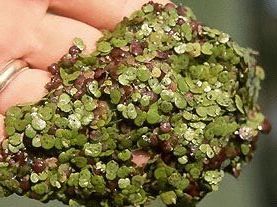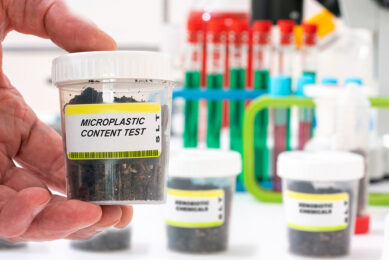Study on replacing soy with duckweed

A number of farms in the Netherlands is investigating the possibility of using duckweed as a replacement for soy in animal feeds.
“By growing duckweed on residues of fermentation units a short cycle is created for nutrients and carbondioxide,” says Hayo Canters Cremers of CC consulting.
In a study the prudential and practical feasibility of growing duckweed is investigated.
Duckweed is a collective name for water plants that float on the water. At favourable circumstances the biomass volume can double in two days time.
Duckweed contains up to 40% protein, which composition is similar to that of soybeans.
From laboratory studies it was confirmed that duckweed grows on fermentation residue. Under Dutch conditions a harvest of 20 to 40 tonnes of duckweed (dry matter) per hectare should be feasible.
Previously Wageningen University has done some research in feeding duckweed to animals. Naturally grown duckweed is suitable as a cattle feed, but needs to be processed. Cows do not like raw duckweed.
The current study is supported by the Dutch Ministry of Agriculture. Funding for the practical study was requested at provincial level.











